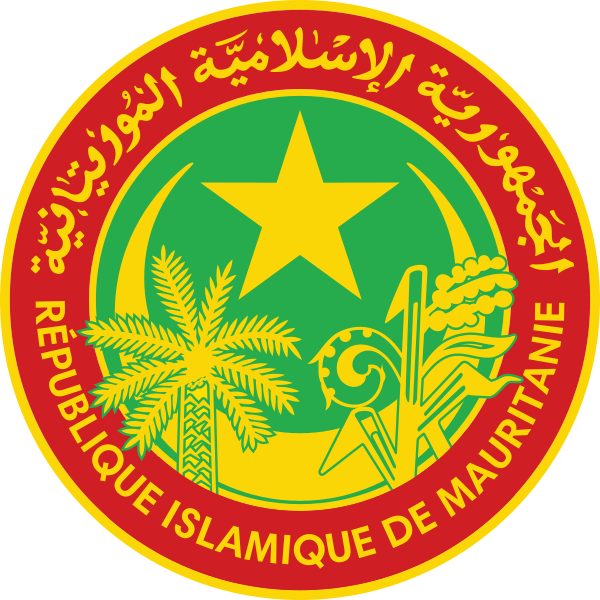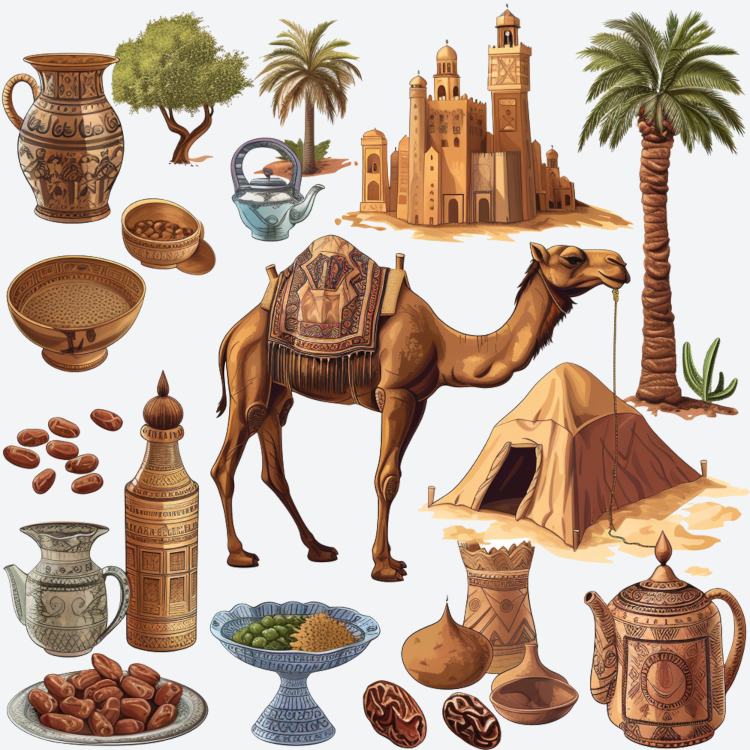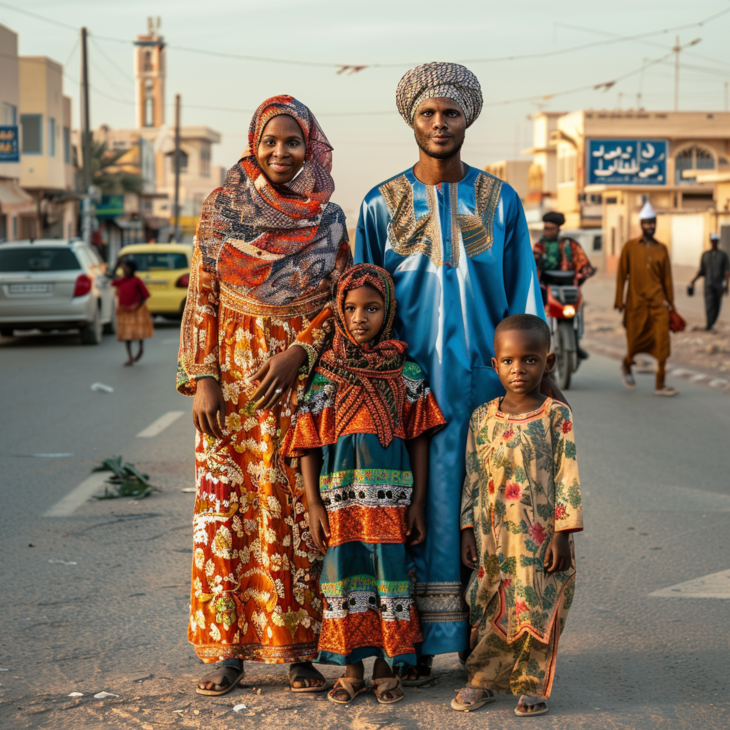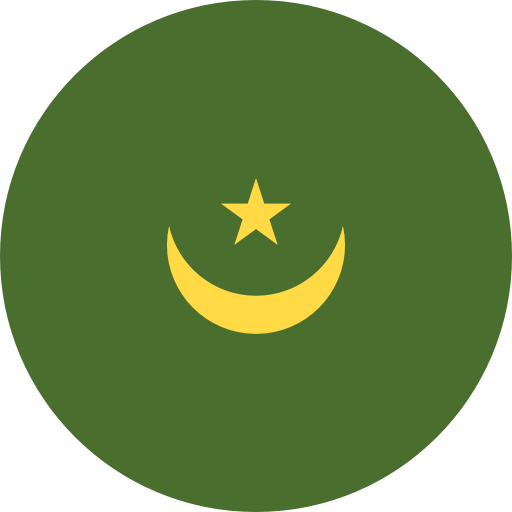About MR

Location
Mauritania is located in Northwest Africa, bordered by the Atlantic Ocean to the west and northwest, Western Sahara to the north and northeast, Algeria to the northeast, Mali to the east and southeast, and Senegal to the southwest.
Capital
The capital city of Mauritania is Nouakchott.
Population
As of the latest estimates, Mauritania has a population of approximately 4.7 million people.
Area
Mauritania covers a total land area of about 1,030,700 square kilometers (approximately 397,955 square miles), making it the eleventh largest country in Africa.
Official Language
Arabic is the official language of Mauritania. French is also widely spoken, particularly in government, business, and education.
Government
Mauritania is a presidential republic with a multi-party system. The President of Mauritania serves as both the head of state and the head of government. The country has a bicameral legislature consisting of the Senate and the National Assembly.
Independence
Mauritania gained independence from France on November 28, 1960.
Currency
The currency of Mauritania is the Mauritanian Ouguiya (MRO).
Economy
Mauritania's economy is largely based on agriculture, livestock herding, fishing, and mining. The country is rich in natural resources, including iron ore, gold, copper, and petroleum. Mauritania is one of the largest producers of iron ore in Africa. However, the economy faces challenges related to poverty, unemployment, and income inequality.
Natural Resources
Mauritania is endowed with rich mineral resources, including iron ore deposits in the north and northwest regions of the country. Fishing is also a significant economic activity, with Mauritania's waters being among the richest fishing grounds in the world.
Climate
Mauritania has a desert climate, characterized by hot, dry summers and mild winters. The country experiences minimal rainfall, particularly in the northern regions, where the Sahara Desert covers much of the territory.
Culture
Mauritania has a diverse cultural heritage influenced by its Arab-Berber, African, and Islamic roots. Traditional music, dance, and poetry play an important role in Mauritanian culture. The majority of the population adheres to Islam, which shapes various aspects of daily life and social norms.
Human Rights
Mauritania faces challenges related to human rights, including issues of slavery, discrimination, and restrictions on freedom of expression and assembly.
Security
Mauritania faces security threats from terrorism, particularly from extremist groups affiliated with Al-Qaeda in the Islamic Maghreb (AQIM) operating in the Sahel region.
International Relations
Mauritania is a member of the United Nations (UN), the African Union (AU), and the Arab League, among other international organizations. The country plays a role in regional security initiatives and has participated in peacekeeping missions in Africa.

National Items of Mauritania
Camel
The camel is an essential symbol in Mauritania, representing traditional nomadic life, endurance, and the importance of camels in transportation and culture.
Sahara Desert
The Sahara Desert covers much of Mauritania and symbolizes the vast, arid landscapes, natural beauty, and challenging environment in which the Mauritanian people live.
Moorish Tea
Moorish tea, a strong green tea brewed with mint and sugar, is a cultural staple in Mauritania. It symbolizes hospitality, social customs, and traditional practices.
Boubou
The boubou is a traditional flowing garment worn by both men and women in Mauritania. It symbolizes cultural heritage, identity, and traditional fashion.
Oualata Manuscripts
The Oualata Manuscripts are ancient texts that highlight the rich intellectual and historical heritage of Mauritania, particularly during the Islamic golden age.
Tagant Plateau
The Tagant Plateau is a significant natural landmark in Mauritania, symbolizing the country’s natural beauty, geological diversity, and historical significance.
Traditional Moorish Music
Traditional Moorish music, often featuring instruments like the tidinit and ardin, symbolizes cultural heritage, artistic expression, and social traditions.
Chebbye
Chebbye is a traditional Mauritanian dish made from lamb and served with couscous. It symbolizes the rich culinary heritage and traditional foods of Mauritania.
Dates
Dates are a common and important fruit in Mauritania, symbolizing sustenance, agricultural heritage, and traditional diet.
Atar
Atar is a city known for its historical significance and as a gateway to the Adrar region. It symbolizes historical heritage, cultural significance, and natural beauty.
Iron Ore
Iron ore is a major natural resource in Mauritania. It symbolizes the country’s rich mineral wealth, economic significance, and industrial importance.
Banc d’Arguin National Park
Banc d’Arguin National Park is a UNESCO World Heritage site and a significant natural reserve. It symbolizes Mauritania’s commitment to conservation, biodiversity, and natural beauty.
Moorish Architecture
Moorish architecture, characterized by intricate designs and traditional building methods, symbolizes the cultural heritage and historical significance of Mauritania.
Nomadic Tents
Nomadic tents, used by Mauritanian nomads, symbolize traditional lifestyle, cultural heritage, and adaptability to the desert environment.
Silver Jewelry
Traditional Mauritanian silver jewelry, known for its intricate designs, symbolizes rich artisanal heritage, cultural identity, and craftsmanship.
Rosso
Rosso is a city on the Senegal River, symbolizing the geographical significance, agricultural heritage, and cultural diversity of the region.
Smara
Smara is a historic town with significance in Islamic scholarship and cultural heritage. It symbolizes intellectual heritage, religious significance, and historical importance.
Saharan Oasis
Saharan oases in Mauritania symbolize the lifeline of desert communities, natural beauty, and the importance of water resources in an arid environment.
Mbeidane
Mbeidane is a traditional Mauritanian stew made with fish and vegetables. It symbolizes the rich culinary heritage and traditional foods of Mauritania.

This anthem expresses pride, sacrifice, and devotion to the nation of Mauritania, as well as reverence for God.
The national anthem of Mauritania is called "Hymne National de la République Islamique de Mauritanie" in French, which translates to "National Anthem of the Islamic Republic of Mauritania" in English. Here are the lyrics in Arabic along with an English translation:
بلاد العلم السماح المجيد
موريتانيا نحن منفديد
الله أكبر ولله العزة
الله أكبر ولله العزة
كنا يوما فداء للعلم والوطن
موتا وحيينا كراما القوم
الله أكبر ولله العزة
الله أكبر ولله العزة
Land of tolerance, dignity, and grandeur,
Mauritania, we sacrifice ourselves for you.
God is great, and to God belongs all glory.
God is great, and to God belongs all glory.
We were once the sacrifice for knowledge and country,
Martyrs and we lived with the pride of nations.
God is great, and to God belongs all glory.
God is great, and to God belongs all glory.


